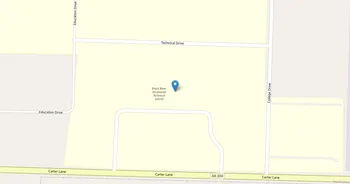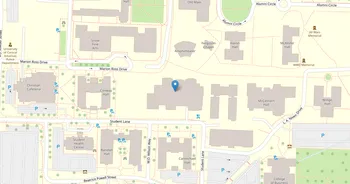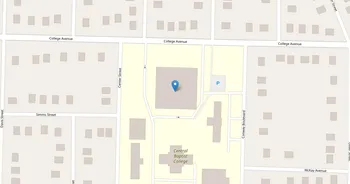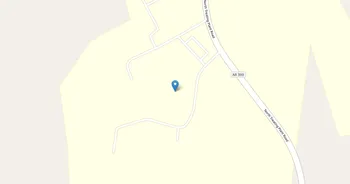Baptist Health College Little Rock (BHCLR) : Overview, Courses, Scholarships & Rankings
About Baptist Health College Little Rock
Set inside a working healthcare environment, Baptist Health College Little Rock is known for focused study in the health sciences and direct patient care. Classes lean practical, with faculty who bring current clinical experience into labs and simulation spaces. Students find steady support through advising, tutoring, a well stocked library, and help using learning tech. And the vibe is professional yet personal, the kind where instructors learn your name and expect you to use what you learn the same day.
Campus life follows a service first rhythm. You'll see students in professional clubs, community outreach, and skills workshops that sharpen bedside communication as much as technique. Career prep is woven through coursework and clinical experiences that link you with hospitals, clinics, and public health partners around Little Rock. Off hours, the city's trails, riverfront, coffee spots, and arts scene offer quick breathers. And milestone ceremonies mark the step from classroom to clinic, a tradition that feels earned.
Key Institutional Details
Contact & Profile
Academic & Institutional
Academic Programs & Fields of Study
Baptist Health College Little Rock (BHCLR) offers 9 degree programs across 1 major academic fields, graduating approximately 316 students annually. The most popular fields by graduate volume are Health (9 programs, 316 graduates). Explore program details, award levels, and graduate demographics below.
Health (9 programs, 316 graduates)
Healthcare Professions, Medical Sciences and Clinical Practice
| Program Name | Graduates | Gender Distribution | Award Levels | CIP Code |
|---|---|---|---|---|
| Registered Nursing | 138 |
|
Associate's
|
51.3801 |
| Licensed Practical Nursing | 83 |
|
Certificate (1-2 yrs)
|
51.3901 |
| Surgical Technology | 24 |
|
Associate's
|
51.0909 |
| Nursing and Patient Care Assistant | 22 |
|
Other Award
|
51.3902 |
| Occupational Therapy Assistant | 17 |
|
Certificate (≥2 yrs)
|
51.0803 |
| Radiologic Technology | 12 |
|
Certificate (≥2 yrs)
|
51.0911 |
| Clinical Laboratory Science and Medical Technology | 8 |
|
Certificate (1-2 yrs)
|
51.1005 |
| Nuclear Medical Technology | 6 |
|
Certificate (1-2 yrs)
|
51.0905 |
| Polysomnography | 6 |
|
Certificate (1-2 yrs)
|
51.0917 |
Admission Requirements & Test Scores
Comprehensive overview of admission criteria, standardized test score ranges, and application requirements for prospective students at Baptist Health College Little Rock (BHCLR).
Application Requirements
Data based on IPEDS for 2022-2023 academic year. Test score ranges represent the middle 50% of admitted students (25th-75th percentile). Requirements may vary by program.
Tuition, Fees & Estimated Costs
Overview of tuition rates, housing, and other annual education expenses for undergraduate and graduate students
Financial Aid & Student Support
Summary of scholarships, grants, student loans, and financial aid statistics for undergraduate students
Student Success Metrics
Graduation rates and post-graduation earnings to help assess student outcomes and long-term value of education.
Loan Burden & Repayment Outcomes
Breakdown of loan repayment rates and student debt levels by income and dependency status.
Frequently Asked Questions
Find answers to the most common questions about Baptist Health College Little Rock (BHCLR)
How much does it cost to attend Baptist Health College Little Rock (BHCLR)?
The annual tuition at Baptist Health College Little Rock (BHCLR) is $13,593 for in-state students. When including room and board, books, and other expenses, the total estimated cost is approximately $15,038 for in-state students. Additional costs include room and board $14,172 (off-campus) and books and supplies $1,445.
Data based on IPEDS program completions for 2022-2023 academic year. Tuition and cost estimates are approximate and may not include all fees, personal expenses, or transportation costs.
What academic programs and degree levels does Baptist Health College Little Rock offer?
Baptist Health College Little Rock (BHCLR) offers 9 academic programs across 1 major fields of study, with available degree levels: Certificate (1-2 yrs), Certificate (≥2 yrs), Associate's, Other Award.
Most popular program areas include:
- Healthcare Professions, Medical Sciences and Clinical Practice (9 programs)
Data based on IPEDS program completions for 2023-2024 academic year. Numbers reflect programs where students graduated, not all offered programs.
What is the acceptance rate for Baptist Health College Little Rock?
Baptist Health College Little Rock (BHCLR) has an 100% acceptance rate and a 60% yield rate, making it moderately selective.
Admission statistics breakdown:
- Total applicants: 15
- Students admitted: 15
- Students enrolled: 9
Data based on IPEDS for 2022-2023 academic year. Admission statistics may vary by program and application cycle.
What financial aid and scholarships are available at Baptist Health College Little Rock?
Baptist Health College Little Rock (BHCLR) provides financial aid to 1% of first-time, full-time students, with average grants of $2,515 and average loans of $5,962.
Average financial aid amounts by type:
- Pell grants: $3,448
- Institutional grants: $649
- Federal loans: $4,949
The university supports 3 students with grants and 4 students with loans annually.
Data based on IPEDS for 2022-2023 academic year. Financial aid amounts and percentages may vary by program, enrollment status, and individual circumstances.
What is the average salary for Baptist Health College Little Rock graduates?
Baptist Health College Little Rock (BHCLR) graduates earn a median salary of $53,393 after 6 years and $62,244 after 10 years.
The salary range 10 years after graduation spans from $38,474 (25th percentile) to $86,463 (75th percentile).
Data based on IPEDS for 2022-2023 academic year. Salary data reflects graduates who received federal financial aid (approximately 60% of all graduates). Actual earnings may vary significantly based on program, location, and individual circumstances.
Related Universities




Found something useful? Help others discover it too! Share with friends, on social media, or save for later - every share helps someone find the information they need.